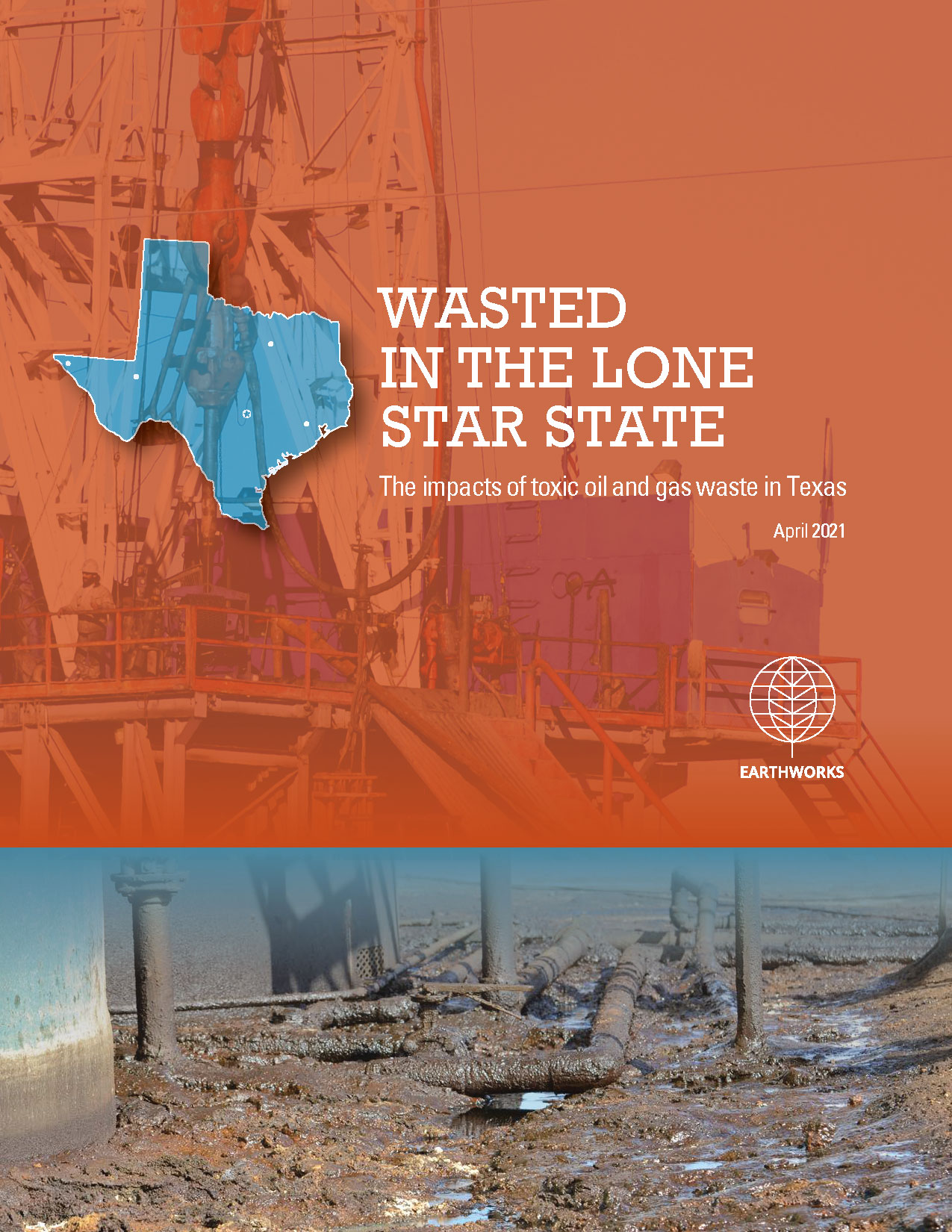This report outlines the risks posed by the status quo in Texas and recommends specific policy changes to protect the health, safety, and stability of all Texans.
The report features unfolding frontline stories, including a legal battle in Orange Grove, Texas over local impacts from the Blackhorn Environmental oil and gas waste facility, and the stockpiling of radioactive oil and gas waste at the Lotus, LLC facility in west Texas.
Preventing industrial harm requires us to deal with long standing power dynamics that allow environmental injustice to persist. The harms faced by frontline communities can be mitigated by shifting power to those who bear the brunt of pollution. Meanwhile, Texas can create immediate improvements in public and environmental health by reducing oil and gas waste pollution in the following ways:
Recommendations
- Because of lax rules and enforcement, the oil and gas industry and regulatory agencies continue to perpetuate the environmental and human harms associated with waste disposal in Texas. State agencies should stop permitting oil and gas operations that send waste to facilities that harm human health and the environment, and waste facilities should not be permitted until protections and oversight are in place to prevent harm.
- Oil and gas operations are inherently toxic, and no one should be forced to assume the risks of toxic exposure without their consent. Therefore, regulators in Texas should require Free Prior Informed Consent that gives communities and residents decision-making authority in the permitting decisions that affect them.
- Oil and gas waste can contain hazardous materials. Therefore, the Texas legislature should remove the exemption for the oil and gas industry from hazardous waste regulations.
- Current disposal methods for oil and gas waste do not account for the cumulative impact of radioactive materials. Therefore, Texas should stop releasing radioactive materials in oil and gas waste into the environment by prohibiting on-site pit burial and discharges to land or water.
- Oil and gas companies are exempt from disclosing the chemicals they use in their operations, which end up in their waste. When waste spills and leaks, or is treated for discharge into the environment, full knowledge of its contents is necessary to ensure it’s properly handled. Therefore, Texas should require full disclosure of the types and concentrations of chemical additives used in all oil and gas operations.
- Given the lack of chemical disclosure, new analytical methods, new rules, and strict oversight, current wastewater treatment methods cannot guarantee the safety of oil and gas wastewater for discharge into waterways or to irrigate land. Therefore, Texas should prohibit the dispersal of wastewater into the environment.
For More Information
FracTracker Alliance interactive map of all commercial oil and gas surface waste facilities permitted by the Texas Railroad Commission
Press Release: New report: TX communities exposed to radioactive, toxic oil and gas waste
Endorsing Organizations:
- CENT (Clean Energy Now Texas)
- Environment Texas
- FracTracker Alliance
- Frontera Water Protectors
- Honor the Earth
- Indivisible Tx Lege
- Livable Arlington
- Lone Star Chapter of the Sierra Club
- Public Citizen – Texas Office
- Sunrise El Paso
- Surfriders Coastal Bend

